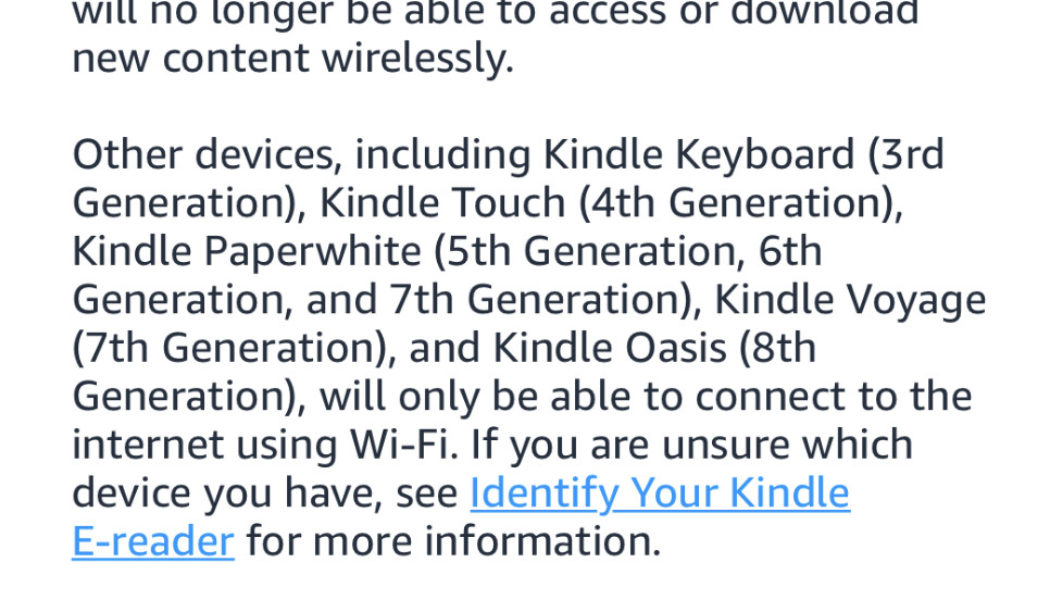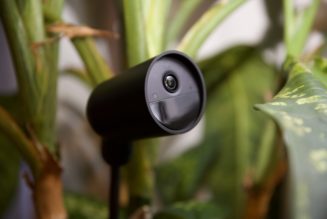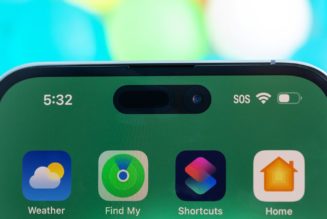Amazon’s Kindle e-readers with built-in 3G will begin to lose the ability to connect to the internet on their own in the US in December, according to an email sent to customers on Wednesday. The change is due to mobile carriers transitioning from older 2G and 3G networking technology to newer 4G and 5G networks. For older Kindles without Wi-Fi, this change could mean not connecting to the internet at all.
As Good e-Reader first noted in June, newer Kindle devices with 4G support should be fine, but for older devices that shipped with support for 3G and Wi-Fi like the Kindle Keyboard (3rd generation), Kindle Touch (4th generation), Kindle Paperwhite (4th, 5th, 6th, and 7th generation), Kindle Voyage (7th generation), and Kindle Oasis (8th generation), users will be stuck with Wi-Fi only. In its email announcement, Amazon stresses that you can still enjoy the content you already own and have downloaded on these devices, you just won’t be able to download new books from the Kindle Store unless you’re doing it over Wi-Fi. You can see Amazon’s email to customers below:
:no_upscale()/cdn.vox-cdn.com/uploads/chorus_asset/file/22746690/Screen_Shot_2021_07_28_at_1.27.49_PM.png)
Things get more complicated for Amazon’s older Kindles, like the Kindle (1st and 2nd generation), and the Kindle DX (2nd generation). Since those devices relied solely on 2G or 3G internet connectivity, once the networks are shut down, the only way to get new content onto your device will be through an old-fashioned micro-USB cable. For customers affected by the shutdown, Amazon is offering a modest promotional credit (NEWKINDLE50) through August 15th for $50 towards a new Kindle Paperwhite or Kindle Oasis, along with $15 in-store credit for ebooks.
While arguably the company could do more to help affected customers (perhaps by replacing older devices entirely) this issue is largely out of Amazon’s hands. The carriers have all committed to different time frames for when older 2G and 3G networks will go kaput, with AT&T setting the date for February 22nd, 2022, T-Mobile reportedly targeting April 2022, and Verizon shooting for December 31st, 2022.
Taking those into account, Amazon’s December date seems premature, but better to be prepared now, than left with a less useful e-reader later this year.









